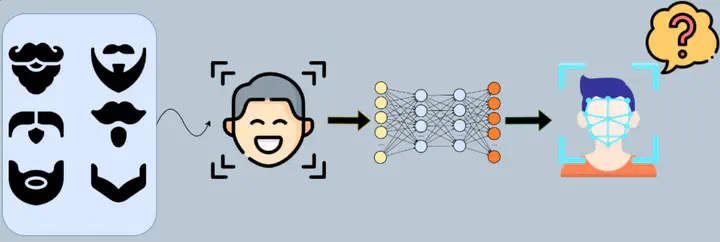Logical Consistency and Greater Descriptive Power for Facial Hair Attribute Learning
 Image credit: Unsplash
Image credit: UnsplashAbstract
Face attribute research has so far used only simple binary attributes for facial hair; e.g., beard / no beard. We have created a new, more descriptive facial hair annotationscheme and applied it to create a new facial hair attributedataset, FH37K. Face attribute research also so far has notdealt with logical consistency and completeness. For example, in prior research, an image might be classified asboth having no beard and also having a goatee (a type ofbeard). We show that the test accuracy of previous classification methods on facial hair attribute classification dropssignificantly if logical consistency of classifications is enforced. We propose a logically consistent prediction loss,LCPLoss, to aid learning of logical consistency across attributes, and also a label compensation training strategyto eliminate the problem of no positive prediction acrossa set of related attributes. Using an attribute classifiertrained on FH37K, we investigate how facial hair affectsface recognition accuracy, including variation across demographics. Results show that similarity and difference infacial hairstyle have important effects on the impostor andgenuine score distributions in face recognition